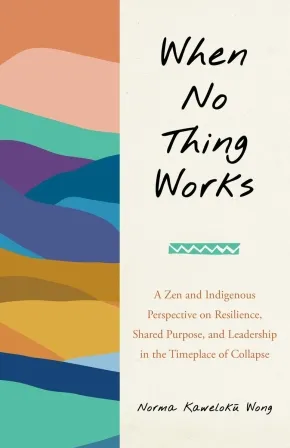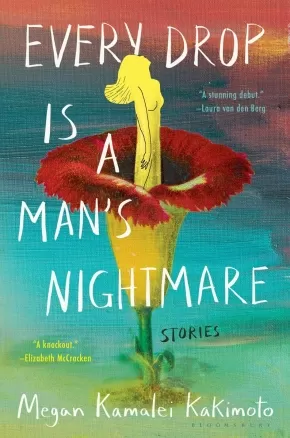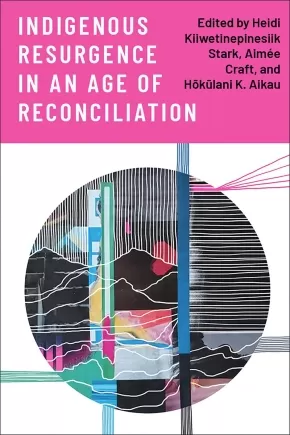
Indigenous Peoples in Hawaii
1
-
4
of
4 Results;
Sort By
In Light and Shadow: A Photographic History from Indigenous America
$51.00
Artists:
Format:
Hardcover
Text Content Territories:
Indigenous Canadian; Indigenous American; Indigenous Polynesian; Indigenous Hawaiian;
Reading Level: N/A
ISBN / Barcode: 9780762482467
Synopsis:
Synopsis:
A landmark photography collection featuring work exclusively by Indigenous Americans, shedding new light on the understanding of Indigenous America.
The history of photography–and the Americas–is incomplete without the critical work and perspectives of Indigenous American photographers. Since the 1800s, cameras have been in the hands of Indigenous people and they have incorporated photography into their lives as creators, patrons, and collectors.
Five years ago, photographers Brian Adams and Sarah Stacke set off on a mission to assemble a groundbreaking, digital library of Indigenous photographers from the 19th century to the present. With In Light and Shadow: A Photographic History from Indigenous America, Adams and Stacke expand on that work, creating a one-of-a-kind collection of photographs that offers a first-hand look at the people, cultures, and evolving traditions of Indigenous America while providing a counterhistory to settler-colonial narratives.
From Jennie Fields Ross Cobb, the earliest known Indigenous American woman photographer, to Arhuaco documentarian Amado Villafaña Chaparro, through Kapuleiikealoonalani Flores, a Native Hawaiian who was born in 2000, the photographers span many generations as well as multiple Indigenous societies and nations. Each entry includes a biographical sketch of the artist, along with their inspirations and contributions to the photographic medium.
With profiles of 80 photographers and more than 250 photographs, this unique book brings to light the canon of Indigenous American photography that has been developing on its own terms for decades.
Additional Information
304 pages | 8.50" x 10.30" | 250 black-and-white and color photographs | Hardcover
When No Thing Works: A Zen and Indigenous Perspective on Resilience, Shared Purpose, and Leadership in the Timeplace of Collapse
$24.95
Format:
Paperback
Text Content Territories:
Indigenous Polynesian; Indigenous Hawaiian;
Reading Level: N/A
ISBN / Barcode: 9798889840992
Synopsis:
Synopsis:
Spiritual and community lessons for embracing collective care, co-creating sustainable worlds, and responsibly meeting uncertain futures—a Zen and Indigenous take on building better, more balanced ways of being
Talking story, weaving poetry, and offering wisdom at the intersections of strategy, politics, and spiritual activism, When No Thing Works is a visionary guide to co-creating new worlds from one in crisis. It asks into the ways we can live well and maintain our wholeness in an era of collective acceleration: the swiftly moving current, fed and shaped by human actions, that sweeps us toward ever uncertain futures. Grounded in Zen Buddhism, interconnection, and decades of community activism, When No Thing Works explores questions like:
- As we stand at a threshold of collective change, what leaps must we make?
- How can we push through discord and polarization and meet these critical changepoints collectively?
- What practices, strategies, and spiritualities can align to vision a sustainable future for our communities and descendants?
- How can we step out of urgency to tend to our crises with wisdom, intention, and care?
With wise and witty prose that wanders and turns, guides and reveals, Zen master and Indigenous Hawaiian leader Rōshi Norma Wong’s meditation holds our collective moment with gravity and tender care. She asks us to not only imagine but to live into a story beyond crisis and collapse—one that expands to meet our dreams of what (we hope) comes next, while facing with clarity and grace our here and now in the world we share today.
Reviews
“Norma Ryuko Kawelokū Wong explores the essence of a twenty-first-century Indigenous worldview in When No Thing Works. She relies on knowing that all things, past and future, are in relationship. What we imagine and how we walk in the present determines the future. As Norma signals, our walk must include leaps that take us into unknowns, but we will not be alone. Norma gives us wise counsel for this difficult moment on Mother Earth. One culture, one belief system, one community alone is unable to fulfill our ancestors’ collective hopes for all of our descendants. As Norma’s ancestors said, ‘O ka ehu kakahiaka . . . The red dawn of our people became the red dawn of many peoples.’ Hawwih (thank you in Caddo), Norma, your family, and your people!”—Judith LeBlanc, citizen of the Caddo Nation, ekah (grandmother), and executive director of the Native Organizers Alliance
“As we stand at the threshold of collapsing systems and broken hearts, there is an opening. In When No Thing Works, Rōshi Norma Wong gives us a compass for how to navigate the space in between where we are coming from and where we are going. This book is an invitation to practice who we need to be to meet this moment and shape a future of possibility and potential.”—Kerri Kelly, author of American Detox
Additional Information
120 pages | 5.51" x 8.51" | 6 b&w photos | Paperback
Every Drop a Man’s Nightmare
$36.99
Format:
Hardcover
Text Content Territories:
Indigenous Hawaiian;
ISBN / Barcode: 9781639731169
Synopsis:
Synopsis:
From major new storytelling talent Megan Kamalei Kakimoto, a blazing, bodily, raucous journey through contemporary Hawaiian identity and womanhood.
Megan Kamalei Kakimoto's wrenching and sensational debut story collection follows a cast of mixed native Hawaiian and Japanese women through a contemporary landscape thick with inherited wisdom and the ghosts of colonization. This is a Hawai'i where unruly sexuality and generational memory overflow the postcard image of paradise and the boundaries of the real, where the superstitions born of the islands take on the weight of truth.
A childhood encounter with a wild pua'a (pig) on the haunted Pali highway portends one young woman's fraught relationship with her pregnant body. An elderly widow begins seeing her deceased lover in a giant flower. A kanaka writer, mid-manuscript, feels her raw pages quaking and knocking in the briefcase.
Every Drop Is a Man's Nightmare is both a fierce love letter to Hawaiian identity and mythology, and a searing dispatch from an occupied territory threatening to erupt with violent secrets.
Megan Kamalei Kakimoto's wrenching and sensational debut story collection follows a cast of mixed native Hawaiian and Japanese women through a contemporary landscape thick with inherited wisdom and the ghosts of colonization. This is a Hawai'i where unruly sexuality and generational memory overflow the postcard image of paradise and the boundaries of the real, where the superstitions born of the islands take on the weight of truth.
A childhood encounter with a wild pua'a (pig) on the haunted Pali highway portends one young woman's fraught relationship with her pregnant body. An elderly widow begins seeing her deceased lover in a giant flower. A kanaka writer, mid-manuscript, feels her raw pages quaking and knocking in the briefcase.
Every Drop Is a Man's Nightmare is both a fierce love letter to Hawaiian identity and mythology, and a searing dispatch from an occupied territory threatening to erupt with violent secrets.
Reviews
"The contemporary Hawaii of Kakimoto’s debut is neither idyllic backdrop nor tragic fable; the stories evoke the land and its intermixing cultures in all their anxiety, claustrophobia and restlessness . . . Weaving Hawaiian words into English ones, Kakimoto positions language as a tether to our most ancient and eternal selves . . . Every Drop Is a Man’s Nightmare is rich and wise, humming with confidence in the knowledge of a particular community’s lovely, miserable ways." - The New York Times Book Review
"The contemporary Hawaii of Kakimoto’s debut is neither idyllic backdrop nor tragic fable; the stories evoke the land and its intermixing cultures in all their anxiety, claustrophobia and restlessness . . . Weaving Hawaiian words into English ones, Kakimoto positions language as a tether to our most ancient and eternal selves . . . Every Drop Is a Man’s Nightmare is rich and wise, humming with confidence in the knowledge of a particular community’s lovely, miserable ways." - The New York Times Book Review
"It would be fitting but too simple to call this collection haunting. The stories in Megan Kamalei Kakimoto’s Every Drop Is a Man’s Nightmare are so lavishly imagined, and their characters—from young women to mythical beings to watchful ancestors and even Hawaii itself—are so defiant, that to offer any solid definitions seems like a betrayal of the book’s ethics. Here, boundaries between the past and present, the living and the dead, are not so much flimsy as nonexistent . . . Even after one closes the book, the power of these stories remains." —Washington Independent Review of Books
“Megan Kamalei Kakimoto is a short story writer that all other short story writers should study. She has the ability to captivate readers with a single sentence. Her prose bursts with exquisite confidence that makes it hard to believe this is a debut collection. Every Drop is a frontrunner for Book of the Year.” —Debutiful
“Kakimoto interweaves themes of sexual desire and fertility with Hawaiian mythology in her unflinching debut collection . . . Marked by a wry sense of humor and an unerring touch for the surreal, Kakimoto's stories add up to a powerful exploration of gender, class, race, colonialism, and domestic violence. This eloquent outing marks Kakimoto as a writer to watch.” —Publishers Weekly, starred review
Additional Information
| 272 pages | 5.51" x 8.25" |
Indigenous Resurgence in an Age of Reconciliation
$39.95
Format:
Paperback
Text Content Territories:
Indigenous Canadian;
Reading Level: N/A
ISBN / Barcode: 9781487544607
Synopsis:
Synopsis:
What would Indigenous resurgence look like if the parameters were not set with a focus on the state, settlers, or an achievement of reconciliation? Indigenous Resurgence in an Age of Reconciliation explores the central concerns and challenges facing Indigenous nations in their resurgence efforts, while also mapping the gaps and limitations of both reconciliation and resurgence frameworks.
The essays in this collection centre the work of Indigenous communities, knowledge, and strategies for resurgence and, where appropriate, reconciliation. The book challenges narrow interpretations of indigeneity and resurgence, asking readers to take up a critical analysis of how settler colonial and heteronormative framings have infiltrated our own ways of relating to our selves, one another, and to place. The authors seek to (re)claim Indigenous relationships to the political and offer critical self-reflection to ensure Indigenous resurgence efforts do not reproduce the very conditions and contexts from which liberation is sought.
Illuminating the interconnectivity between and across life in all its forms, this important collection calls on readers to think expansively and critically about Indigenous resurgence in an age of reconciliation.
Reviews
"This book is an undoubtedly critical, original, and powerful contribution to the field of Indigenous studies and beyond. With sound scholarship, the contributors show us how disentangling from reconciliation discourses is not only a tool of critique, but also a methodology for understanding how settler concepts of territoriality and authority have shaped Indigenous peoples’ understandings of themselves, their governments, and their relationships to land and to one another." — Shiri Pasternak, Assistant Professor of Criminology, Toronto Metropolitan University
"The relationship between reconciliation and resurgence is a complicated and, at times, deeply contested one. This volume does an excellent job of situating itself within the wider literature on resurgence and reconciliation and their conflicted and/or complimentary relationship. This is an important contribution to a fraught conversation, and it provides many different perspectives that help to, if not resolve, then guide the conversation beyond its current roadblocks towards something better." — Joshua Nichols, Assistant Professor in the Faculty of Law, McGill University
Additional Information
280 pages | 6.00" x 9.00" | Paperback
Sort By










